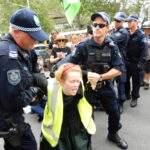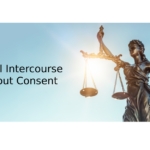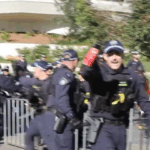Disability and Jury Service in NSW

The ACT Legislative Assembly has passed laws which broaden the range of people who can serve on a jury.
People with disabilities will be no longer be automatically exempt from jury duty in the nation’s capital. Rather, courts will decide on a case-by-case basis whether a person will be able to perform the role of a juror despite their disability.
The changes come after a recent High Court judgement to the effect that a 2012 decision in Queensland to exclude deaf woman Gaye Lyons from jury service was lawful.
Ms Lyons can lip read but requires an interpreter to communicate. The High Court ruled that there was no discrimination because Queensland law had no provisions for an interpreter to be within the jury room.
The law in the ACT has since been changed to allow people to access an interpreter or support person if necessary to properly fulfill their role as a juror. Support persons and interpreters are required to take an oath to the Court.
The law in NSW
The Jury Act 1977 is the primary instrument regulating the qualification, exemption, excusal, selection and discharge of juries in New South Wales.
Section 14 of the Act enables a person to apply to the sheriff for a permanent or temporary exclusion from jury duty if he or she falls within an ‘excluded person’ category listed in Schedule 1 such as certain convicted offenders, or for an exemption if he or she works in an exempted occupation contained in Schedule 2 such as a member of the clergy, a doctor or emergency worker.
Subsection 14(2) states that “A person may request the sheriff to exempt him or her permanently from jury service because the person suffers from a permanent mental or physical impairment that results in jury service being incompatible with the person’s good health or that otherwise renders the person unable to perform jury service”.
Subsection 14(3) allows the sheriff to grant an exemption if there is “good cause” for it.
Under section 14A, “good cause” includes where:
(a) jury service would cause undue hardship or serious inconvenience to the person, the person’s family or the public, or
(b) some disability associated with that person would render him or her, without reasonable accommodation, unsuitable for or incapable of effectively serving as a juror, or
(c) a conflict of interest or some other knowledge, acquaintance or friendship exists that may result in the perception of a lack of impartiality in the juror, or
(d) there is some other reason that would affect the person’s ability to perform the functions of a juror.
The sheriff may also consider granting an exemption to:
- Sole traders and contractors
- Those with care of school aged children who are unable to make alternate care arrangements
- Those in an advanced stage of pregnancy and/or who are having medical difficulties during pregnancy
- Those with a medical condition which would make jury service difficult
- Those enrolled in education who need to attend lectures or exams; or who are living outside the jury district in order to undertake studies
- Those who are absent from New South Wales
- Where there is unsuitable or unavailable public transport
- Those who are unable to read and understand English
Case study
Gemma Beasley and Michael Lockrey are deaf people who live in New South Wales.
In April 2013, both of them appealed separately to the UN Committee on the Rights of Persons with Disabilities (CRPD), arguing that their exclusion under the Jury Act amounted to a breach of their right to equality and non-discrimination under Article 5 of the Convention on the Rights of Persons with Disabilities.
Each of them had been summoned for jury duty and informed the sheriff they would require assistance by way of an Auslan interpreter and real-time steno-captioning, in order to fulfil their duties. Both were then informed that the sheriff had decided to exclude them under Section 14(4).
However, the Committee noted that the CRPD is not legally binding and that its Articles are in the form of recommendations. This meant the government was free to ignore the contents.
Previously in 2006, the NSW Law Reform Commission recommended that the Jury Act be amended so that interpreters and stenographers be allowed by a trial judge to assist the deaf and blind.
However, the NSW government rejected the recommendations.
Reforms
The organisation ‘Disability Rights Now’ has been highly critical of the government’s failure to provide for people with disabilities. It has stated that:
“The exclusion of people with disability from jury service means that juries are not composed of the full diversity of the Australian community. This means that the experience of disability is not available to the jury for consideration during trials, and defendants with disability cannot face a trial by peers.”
The Australian Law Reform Commission has also criticised the blanket exclusion of groups of people with disabilities due to an unwillingness to provide support persons for them.
It is hoped the ACT’s move towards the greater inclusion of people with disabilities will be followed by other jurisdictions.






